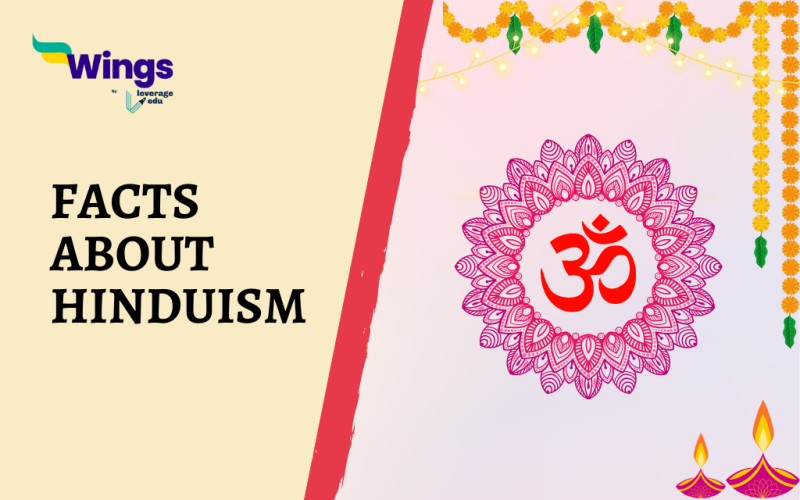Scientific Facts About Hinduism: Hinduism is known to give the world some of the inventions that nobody would have ever imagined. This religion, often termed the oldest living religion, is becoming increasingly popular and beloved for its scientific underpinnings. Hindu scriptures, particularly the different types of Vedas and Upanishads, contain deep insights that go well with modern scientific discoveries. Curious to know more? In this blog, you will read some interesting scientific facts in Hinduism that will leave you speechless. Let’s begin.
Table of Contents [show]
Scientific Facts in Hinduism
Karma and Rebirth- The Hindu concepts of ‘Karma’ and ‘Reincarnation’ have a striking resemblance to the laws of cause and effect and the cyclical nature of existence.
Ayurveda and health- Hindu Puranas offer detailed insights into human anatomy. For instance, human physiology, and pathology. Ayurveda rooted in these observations, provides a holistic approach to health. Modern Science validates Ayurvedic principles and compounds. Sushruta Samhita, an ancient Indian medical text, provides a comprehensive guide to medicine, detailing numerous diseases, plant and mineral remedies, and animal-based treatments.
Ancient and Modern Knowledge- Ancient India showcased significant scientific understanding. We will support this statement with the fact that progress is influenced by various factors, leading to uneven development. Modern science expands our knowledge and capabilities.
You might also like to read about the Difference Between Buddhism and Hinduism.
Scientific Facts in Vedas About the Universe
As mentioned in Bhagavad Gita and several other Vedas, Lord Brahma gave birth to the universe.
Formation of Universe- The concept of ‘Panchabhuta’ means that there are five elements – earth, water, fire, air, and space aligned with the core building blocks of the universe. The Vedic understanding of the atom, referred to as ‘Parmanu,’ precedes modern atomic theory.
End of Universe- Another belief of Hinduism suggests that the universe will be gone after the death of Lord Brahma. What makes it scientific? How are we still here then? It is because we are in the 41st year of Lord Brahma and every year of the lord is 3.1104 billion years.
Science says our universe is approximately 155.52 trillion human years old and only has 311.04 trillion years left. This is proven by the Big Bang theory, which is widely accepted by the universe.

Enjoy reading about Unknown Facts About the Bhagavad Gita.
Hinduism and Scientific Discoveries
Here are some of the discoveries by Hinduism that are very well supported by Science.
- The Rig Veda described the Sun as the centre of the solar system, with planets orbiting it.
- The Mahabharata story of the Kauravas suggests knowledge of embryo splitting and artificial wombs.
- The Hanuman Chalisa might contain a coded reference to the distance between Earth and the Sun, with an accuracy of about 1%.
- The Rig Veda describes the Earth moving without limbs, suggesting an understanding of gravity.
- Vedic scholar Sayana described the Sun’s movement in a way that closely resembles the modern value of the speed of light.
- The Rig Veda explains eclipses scientifically, recognizing the Moon’s role and lack of self-illumination.
- Ancient Indians had four methods for measuring a year, with one method (Saura) very close to the modern value.
- Aryabhata approximated the value of Pi (π) in 499 CE, recognizing its irrationality.
- Aryabhata’s work suggested a rotating Earth.
- Aryabhata calculated Earth’s circumference based on his Pi approximation, with an accuracy of about 0.7%.

Also Read: Biography of Aryabhatta: Indian Astronomer and Mathematician
Contributions of Hinduism to the World
Here are some of the major key contributions and amazing innovations of Hinduism to the field of Science.
1. Mathematics and Science
- Concept of zero and decimal system
- Number systems like numeral notations, Fibonacci numbers, binary numbers, etc.
- Advanced mathematical concepts like the Chakravala method
- Atomic theory
- Heliocentric theory
2. Technology and Engineering
- Ironworking like Wootz steel, smelting of zinc
- Metallurgy like seamless metal globe
3. Medicine
- Medical sciences such as Ayurveda, plastic surgery, and cataract surgery
- Weaponry such as iron-cased rockets
Ancient Hindu scriptures offer a rich source of material for modern research, yet not all their narratives align with scientific understanding.
Find Related Reads Here!
FAQ
Yes, archaeological, textual, and linguistic evidence supports the existence of Hinduism.
Many scientists, including Werner Heisenberg and Carl Sagan, found parallels between Hindu philosophy and quantum mechanics, cosmology, and the cyclical nature of existence.
Proof of the existence of Hindu gods in a scientific or empirical sense is absent. Hinduism primarily relies on faith, personal experience, and philosophical reasoning for its beliefs.
I hope you liked reading these scientific facts about Hinduism. If you want to know more about topics like this, then visit our Interesting Facts and General Knowledge page!
 One app for all your study abroad needs
One app for all your study abroad needs















 45,000+ students trusted us with their dreams. Take the first step today!
45,000+ students trusted us with their dreams. Take the first step today!
